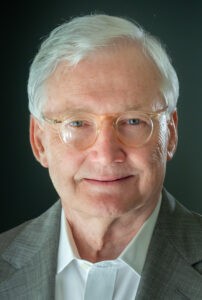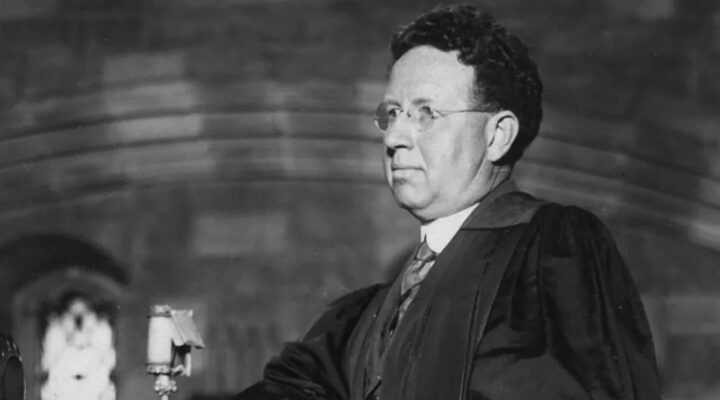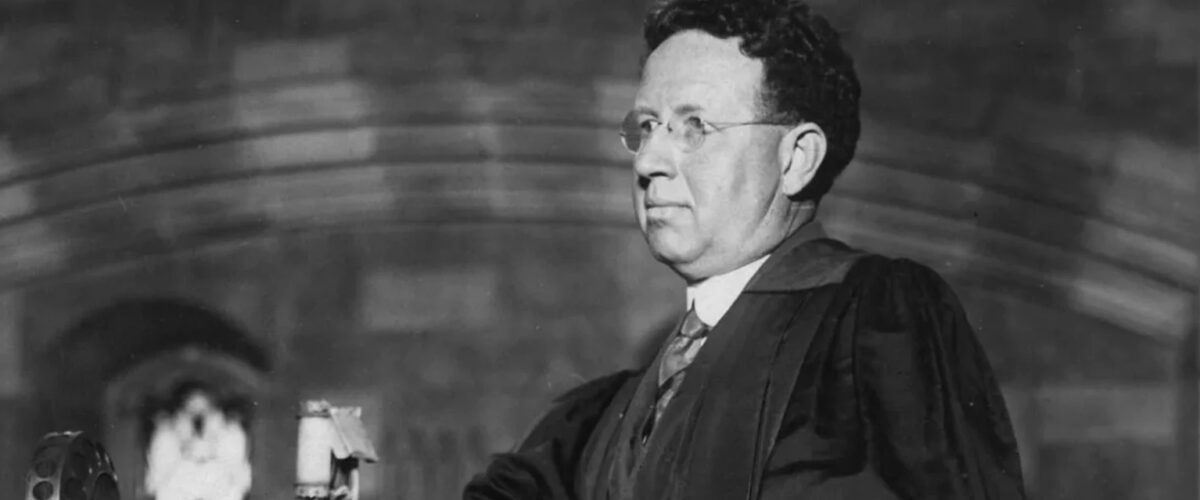One hundred years ago, May 21, 1922, Harry Emerson Fosdick preached his most famous sermon, “Shall the Fundamentalists Win?” He was at the time the preaching minister of the First Presbyterian Church in New York City.
The Presbyterian denomination along with other mainstream denominations was wracked with the fundamentalist/modernist controversy. Fosdick’s sermon was a cry for tolerance with the hope that denominations not split over this theological battle. But a member of the congregation, funded by John D. Rockefeller, sent 130,000 copies of the sermon to clergy all over the nation, and it became a kind of battle cry against the fundamentalist movement that was threatening to split denominations in America.

Stephen Shoemaker
The main issue Fosdick addressed was how Christians were to respond to the new knowledge in science — biology, astronomy, physics — and in the historical examination of the past, including historical criticism of the Bible. The “five fundamentals” of the fundamentalist movement were the inerrancy and infallibility of the Bible; the virgin birth; the historicity of all the biblical miracles; the bodily resurrection of Christ and his physical return in the Second Coming; and substitutionary blood atonement.
Fosdick argued that these doctrines forced modern Christians to live with a divided mind, the intellectual life split off from what doctrines required them to believe. Protestant liberalism, in contrast, championed an openness to critical inquiry in the sciences, individual reason and experience and a Christian ethic that sought both personal and social transformation (so says professor Gary Dorrien).
“Fosdick argued that these doctrines forced modern Christians to live with a divided mind, the intellectual life split off from what doctrines required them to believe.”
In the main, modernism won the battle and the fundamentalist movement retreated to the backwaters of American life, only to surge back to cultural and political prominence beginning with Jerry Falwell’s Moral Majority movement in the 1970s.
Today, 50 years later, we could say that fundamentalism has won. Joined with the political forces of the right, championing white Christian nationalism, Christian supremacy and white supremacy, suspicious of science and wed to such political power, it has become a powerful political movement while adopting the less-threatening name “evangelical.”
The theological wars of the last century have become today’s culture wars over issues like abortion, homosexuality and the “traditional family,” husband in charge.
However, Fosdick preached another famous sermon that addressed the future of liberal Christianity. He preached it in 1935 at The Riverside Church in New York City, and it had the surprising title, “The Church Must Go Beyond Modernism.” Its challenge to liberal Christianity was prescient and is still pertinent today.
He began by saying that while the church must go beyond modernism, it had to go as far as modernism and offered these poignant words: “Fifty years ago, a boy seven years of age, was crying himself to sleep at night in terror, lest dying, he should go to hell, and his solicitous mother, out of patience with the fearful teachings which brought such apparitions to the mind, was trying in vain to comfort him. That boy is preaching to you today.”
Fosdick then outlined the weaknesses of modernism: It was excessively preoccupied with intellectualism; it was dangerously sentimental, not taking into sufficient account the reality of human sin and evil; it “watered down and thinned out the central message … of religion, the reality of God”; and it had “lost its ethical standing ground” and moral power to challenge society. Writing on the last point, he said liberal Christianity had “adapted itself to contemporary nationalism … contemporary capitalism, contemporary racialism,” thus harmonizing itself to culture.
“A revitalized liberal Christianity today must wrestle with the issues Fosdick presented and others that have arisen since.”
A revitalized liberal Christianity today must wrestle with the issues Fosdick presented and others that have arisen since. Can we recover transcendence and the reality of God? Are we more than a political arm of progressive politics? Do we have a moral standing ground to challenge society? Do we take human evil seriously enough? Can we revive the essential unity of the personal gospel and the social gospel? Can we repent of systemic racism and become anti-racist? Can we keep Scripture central without a biblicism that asks us to check our brains at the doors when we come to church? And most importantly, can we keep the teachings and life of Jesus at the heart of who we are?
Stephen Shoemaker serves as pastor of Grace Baptist Church in Statesville, N.C. He served previously as pastor of Myers Park Baptist in Charlotte, N.C.; Broadway Baptist in Fort Worth, Texas, and Crescent Hill Baptist in Louisville, Ky.
Related articles:
Fundamentalism has (almost) won: Now what? | Opinion by Bill Leonard
‘The Sin of Certainty:’ Peter Enns’ journey from belief to trust | Opinion by Alan Bean


